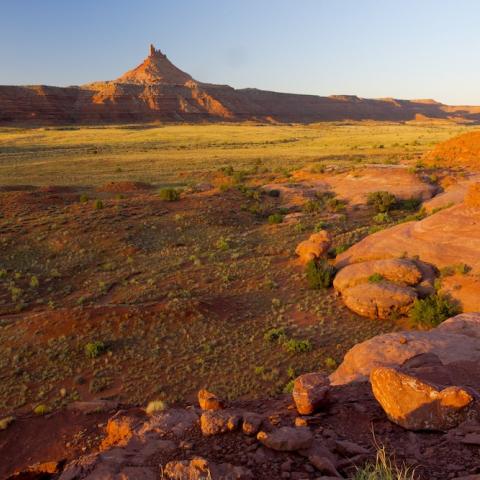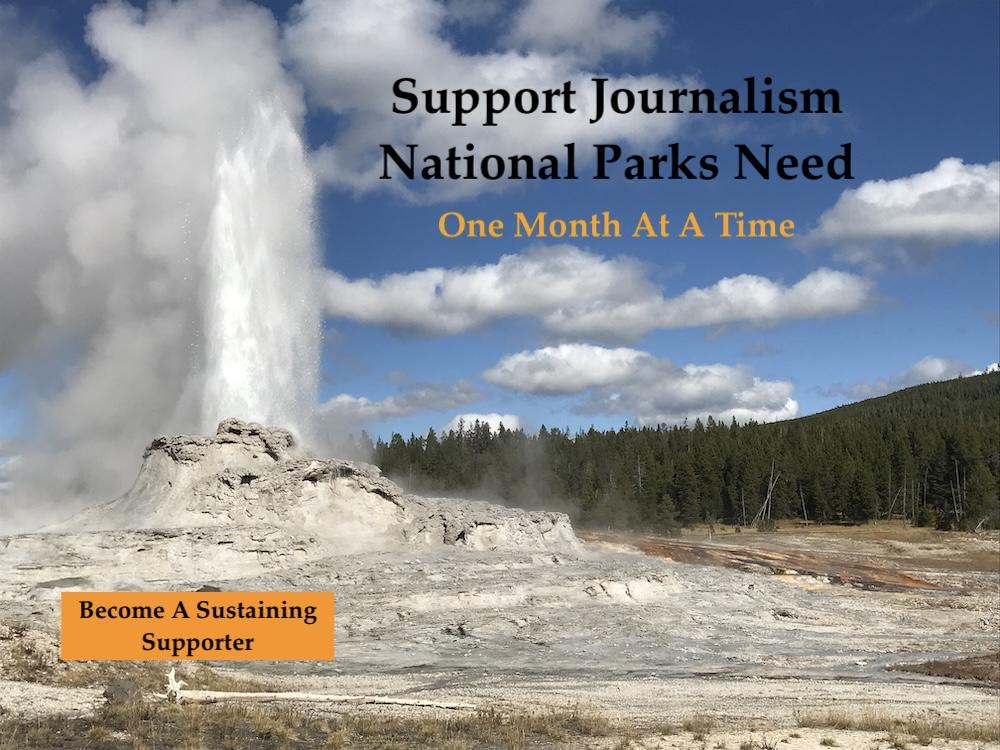More than 400 organizations, led by The Wilderness Society, have written President Trump and Interior Secretary Ryan Zinke to urge them not to "repeal or undermine protections for parks or national monuments."
The appeal comes as Secretary Zinke gets ready to review the Antiquities Act that allows presidents to designate, without congressional approval, national monuments, and how Presidents Clinton, Bush, and Obama have used the act.
"Since its enactment over a hundred years ago, the Antiquities Act has been one of our nation’s most critical conservation tools for preserving our nation’s most important public lands and waters. Our national parks and monuments and other protected public lands and waters unite all Americans by protecting our shared American heritage for future generations to enjoy," a portion of the letter reads. "The sheer diversity of historic, cultural, and natural treasures that have been protected by the Antiquities Act is the reason why hundreds of groups representing sportsmen, cultural heritage organizations, evangelicals, conservation, recreation businesses, historic preservation, social justice, and many others all oppose efforts to undermine our national monuments and view an attack on any one national monument as an attack on them all."
Leading the push for the review has been the Utah congressional delegation, which greatly disagreed with President Obama's designation late last year of Bears Ears National Monument as well as President Clinton's designation of the Grand Staircase-Escalante National Monument back in 1996.
The battle between environmental and conservation groups against multiple-use groups has heightened greatly since the Bears Ears was designated. Among the fallout was the decision by the Outdoor Industry Association, which has staged its twice-yearly Outdoor Retailers Show in Salt Lake City for 20 years, to leave the state after this coming summer's show. Industry giant Patagonia also has actively been promoting the value of Bears Ears for the protection it offers the rugged, red-rock landscape, the cultural treasures and values it holds, and the recreational outlet the area provides.
But President Trump, in directing Secretary Zinke last week to review the Antiquities Act, portrayed it as a vehicle for land grabs, regardless of the fact that lands involved already are federally owned.
"Today I'm signing another executive order to end another egregious abuse of federal power, and to give that power back to the states and to the people where it belongs," the president said last Wednesday during a signing ceremony at the Interior Department. "The previous administration used a 100-year-old law known as the Antiquities Act to unilaterally put millions of acres of land and water under strict federal control. Eliminating the ability of the people who actually live in those states to decide how best to use that land.
"Today we're putting the states back in charge," he added.
At the ceremony Secretary Zinke charged that the Antiquities Act in recent years has been used as a "tool of political advocacy rather than public interests. And it's easy to see why designations in some cases are viewed negatively in local communities that are impacted most."
But in their letter, those aligned with The Wilderness Society said Americans "overwhelmingly oppose efforts to roll back protections for the parks, monuments, marine sanctuaries and other public lands and waters they love. According to Colorado College’s Conservation in the West Poll, 80 percent of Western voters support keeping existing national monuments protections in place while only 13 percent of Western voters supported removing protections for existing monuments. This poll reinforces other surveys that document widespread public opposition to congressional attacks on new parks. In a December 2014 Hart Research Poll, 90 percent of Americans support the permanent protection of some public lands, monuments, wildlife refuges and wilderness. Americans want more protected public lands and waters, not less!"



 Support Essential Coverage of Essential Places
Support Essential Coverage of Essential Places







Comments
Over 400 organizations? I'd say we have too many organizations in this country.